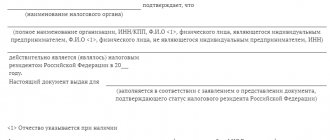General concepts
A power of attorney is a written document whose subjects are the following persons: the attorney and the principal . The first is a citizen or organization that carries out the assignments provided for in the contract. The second is the person who transfers his legal powers.
As a rule, such an agreement is concluded to perform various types of legal actions. These include:
- the right to sign primary documentary acts and certificates;
- signing of documents;
- filling out the transfer and acceptance certificate;
- preparation and certification of invoices, etc.
Important! Not all powers of attorney must be registered with a notary.
It is necessary to notarize only when you need to make a special kind of transaction that is subject to state registration .
Completion of a legal transaction
There are several types of power of attorney, each of which has its own characteristics and nuances:
- General.
- Special.
- One-time.
A general power of attorney is an act that allows the attorney to perform a wide range of actions in relation to the property granted to him. It is issued, as a rule, in situations where it is necessary to carry out necessary legal actions for a long time (for example, due to a citizen’s serious illness or long-term absence).
A special power of attorney presupposes the right to perform a strictly defined range of actions in one of the spheres of society. As a rule, it indicates a short time frame (several months). Such documents are needed for conducting business in court, supporting large transactions, etc.
A one-time power of attorney is the simplest and short-term form of this type of transaction. It is needed to sign a document, submit the necessary documents to government agencies, etc.
What to do after writing
After writing the power of attorney, it is advisable to consult with a notary about whether it needs to be certified. In most cases this is not required, but if you apply to government agencies without notarization, the document is invalid. A call to the notary is needed precisely to save time and nerves. It is best when a company lawyer is involved in drawing up a power of attorney, but sometimes this work is entrusted to a secretary or other authorized employee.
Who issues the document and for whom?
A power of attorney for the right to sign documents or agreements on behalf of both an individual and a legal entity can be issued to absolutely any person.
This provision is directly enshrined in civil law. However, there are some restrictions. So, for example, in arbitration courts only a lawyer , that is, a citizen with a specialized education, can act by proxy.
Based on this, a power of attorney can be issued to an individual, legal entity or individual entrepreneur.
If you need to issue a special permit to sign an order or other legal act, you need to determine the subject composition.
As noted above, absolutely any person can be an attorney. For example, within commercial organizations a power of attorney is issued for a director with the right to sign or a power of attorney for a deputy. Such an act can also be issued on behalf of an individual entrepreneur.
Do you need to figure out who can be the principal in this relationship? As a rule, this is the person who is the holder of the right to the original signature. However, if a citizen is a minor or simply incompetent, then such powers of attorney can only be issued by their representatives, recognized as such by law or by decision of the guardianship and trusteeship authorities.
What company documents are not signed for the director?
Documents that are not signed by the head of the enterprise are those papers that are addressed to the Federal Tax Service and are intended for state purposes. legal registration faces.
Subp. “a”, clause 1.3 of article F.Z. No. 129-FZ establishes that these papers are sent to the authorized body by the director or other person who is authorized to carry out actions on behalf of the company without issuing a power of attorney.
In addition to the director, this right is vested in:
- persons who are the founders of the enterprise;
- persons who are bankruptcy trustees;
- management of the enterprise, which is the founder of the company, which is subject to state registration;
- persons who are authorized to register a company by law or by virtue of legal provisions determined by a state or municipal authority.
It should be noted that if the charter does not establish a legal provision regarding the prohibition of the transfer of directorial powers to sign accounting or financial statements, then a power of attorney must be issued.
Watch the video. How to challenge a signature in a contract:
https://youtu.be/dZcAAMf1fg0
Dear readers of our site! Our articles talk about typical ways to resolve legal issues, but each case is unique.
If you want to find out how to solve your specific problem, please contact the online consultant form on the right. It's fast and free! Or call us at :
+7-495-899-01-60
Moscow, Moscow region
+7-812-389-26-12
St. Petersburg, Leningrad region
8-800-511-83-47
Federal number for other regions of Russia
If your question is lengthy and it is better to ask it in writing, then at the end of the article there is a special form where you can write it and we will forward your question to a lawyer specializing specifically in your problem. Write! We will help solve your legal problem.
How to issue a power of attorney
Before drawing up a power of attorney, you need to understand the rules for drawing up this document. This act must be completed in writing. Moreover, in cases established by law, notarization is also required.
The power of attorney includes some elements that must be reflected in every document of this kind. They will be discussed below.
Power of attorney form
The form of any document refers to the form in which it can be executed. The power of attorney can be handwritten or printed on a computer. The oral form cannot be used in this case. It is worth noting that if the legal requirements regarding the form of the contract were not met by the parties, then the act concluded between them can be considered invalid (that is, not giving rise to any consequences).
Power of attorney structure
Signing a deed or performing any other legal action must be formalized by concluding a power of attorney agreement, which necessarily includes the following elements :
- information about the parties - the principal and the attorney, including their full name, place of residence or address, as well as information about register entries, if any;
- the name of the document compiled;
- information about what exactly permission is given for - to sign documents, to register actions, to represent in court, to represent the interests of a commercial or other organization, etc.
At the end of this act, the signatures of both parties and the stamp of the organization (if one is a party to the agreement) must be affixed. You must also indicate the date during which this document will be valid. The period is determined solely by agreement of the parties. If it is not contained in this act, it will be declared invalid.
How to draw up a power of attorney correctly
When filling out the power of attorney form, be sure to include all the required information.
The power of attorney is drawn up according to strictly defined rules. It must contain the following information:
- Details of the principal (on whose behalf the power of attorney was drawn up);
- Details of the representative (in whose name the document was drawn up);
- The powers that the power of attorney gives;
- Validity;
- Date of preparation;
- Signatures and seals of the parties, signature of a lawyer.
The principal's data, if it is a private person, includes the full name, year of birth, registration address, if an enterprise - the name, bank details, and other data that may be required. The same applies to the representative's data. It is also important to specify in detail exactly what powers the representative receives.
The validity period of the power of attorney is considered from the date of its preparation indicated in the document. That is why you need to pay attention to this column. Signatures and seals are also required to confirm that both parties have read the terms of the power of attorney and accept them.
Its features
There are two main types of powers of attorney - notarized and business documents. The first group is documents that need to be certified by a notary, and without his signature they have no legal force. Such powers of attorney are needed by private individuals who cannot be present during the conclusion of a transaction and trust another person to do this.
Business papers are most often issued by organizations. These may be powers of attorney to receive parcels and registered letters at the post office, receive salaries, grants and other financial transactions. In such cases, a free form of power of attorney indicating all the details of the enterprise is acceptable.
Power of attorney for the right to sign delivery notes
Invoices are understood as documents that are used in legal relations for the supply of goods. Since only legal entities can be its parties, a power of attorney is issued to the head of the company or his deputy in cases prescribed by law.
A power of attorney to sign documents for the general director is issued in the form of a one-time document and is used in situations where for some reason (illness, business trip) he cannot carry out the required action.
For the head of the organization, a general power of attorney , which involves the constant performance of the most important legal actions on behalf of and in favor of the organization.
Sample power of attorney
Signing civil contracts
Let's start with the simplest option - signing various civil contracts. The general rule that the contract on behalf of the company is signed by its director (Article 53 of the Civil Code of the Russian Federation) is fully applicable here. But at the same time, the director can delegate this right to any other person. To do this, it is enough to issue a corresponding power of attorney on behalf of the organization (Article 185 of the Civil Code of the Russian Federation). Please note that a power of attorney can be drawn up not only for an employee of an organization, but also for a person who is not on the staff of the organization and does not even have a civil contract with it. Moreover, a power of attorney can also be issued to a legal entity. In this case, the head of the authorized company or a person appointed by him (also on the basis of a power of attorney) will be able to act on behalf of the company.
The general rules for drawing up a power of attorney for signing contracts are given in Article 185.1 of the Civil Code (note that the same provisions apply when drawing up powers of attorney for most other purposes, for example, for tax purposes).
So, a power of attorney on behalf of a legal entity is issued in simple written form (except for cases when powers are transferred to complete a transaction that requires notarization, or to sign various documents related to registered real estate - in these cases, the power of attorney will have to be certified by a notary). There are no unified forms for power of attorney. This means that the company can develop the necessary samples itself. They do not need to be approved by any internal administrative document. This is explained by the fact that a power of attorney is not a primary accounting document, since it does not confirm any business transactions. Thus, if necessary, the company can always quickly supplement or change the form of the power of attorney.
Of the mandatory details for a power of attorney, the Civil Code of the Russian Federation names only the signature of the head of the organization and the date of issue of the document (clause 4 of Article 185.1 of the Civil Code of the Russian Federation and clause 1 of Article 186 of the Civil Code of the Russian Federation). Neither the validity period of the power of attorney, nor the sample signature of the authorized person, nor the grounds for the transfer of powers are mandatory details, but can be included in the text of the document if the principal considers it necessary.
From the general provisions on a power of attorney it follows that it must contain the essence of the delegated powers, as well as the data of the authorized person and the person who issued the power of attorney. In practice, to identify a legal entity (both the principal and the authorized person), the power of attorney indicates its organizational and legal form, company name, OGRN and Taxpayer Identification Number. And to identify an individual as a trustee - his last name, first name and patronymic (in full), date and place of birth, place of residence, as well as passport details (series, number, date of issue and details of the unit that issued the document (name and number)) . Accordingly, the power of attorney will be valid only upon presentation of the passport of the authorized person (which, by the way, also contains a sample signature - which is why it is not required in the power of attorney).
Additionally, the power of attorney can reflect its validity period. If this is not done, then it will be valid for exactly one year from the date of issue (clause 1 of Article 186 of the Civil Code of the Russian Federation). Please note that absolutely any period can be specified in the power of attorney: the legislation does not provide for either minimum or maximum values. At the same time, it is impossible to establish the duration of the power of attorney in the form of an event (for example, receipt of goods or signing of an agreement), since such an approach contradicts the general rules of Article 190 of the Civil Code of the Russian Federation. This article allows the deadline to be determined by indicating only an event that must inevitably occur, that is, it cannot depend on the will and actions of the parties (clause 4 of the information letter of the Presidium of the Supreme Arbitration Court of the Russian Federation dated January 11, 2002 No. 66).
Let's summarize. The right to sign civil documents on behalf of an organization can be transferred to any person. The transfer is formalized by a written power of attorney signed by the head of the organization. There is no unified form for this document. The organization determines the validity period of the power of attorney independently, based on specific circumstances.
Power of attorney to sign an agreement on behalf of an individual entrepreneur
A sample power of attorney for the right to sign documentary acts on behalf of an individual entrepreneur is a document that must contain:
- information about the registry entry;
- TIN;
- full name of the individual entrepreneur;
- listing the powers of the attorney;
- the right to use a seal to legitimize signed contracts.
Otherwise, all the rules that are used for an agreement of this kind, the parties to which are individuals, apply to this document.
Sample power of attorney
Power of attorney for signing certificates of completed work
The power of attorney for signing documents, the sample of its execution in this situation is the same as described above. However, there are some peculiarities.
So, in this situation, legal relations in the field of contractual obligations .
Important! The customer of this or that work or service has the right to sign the acceptance certificate.
If for some reason such a person cannot do this on his own, then a power of attorney can be issued. It must specify the procedure according to which the work must be accepted, what verification activities must be carried out, etc.








